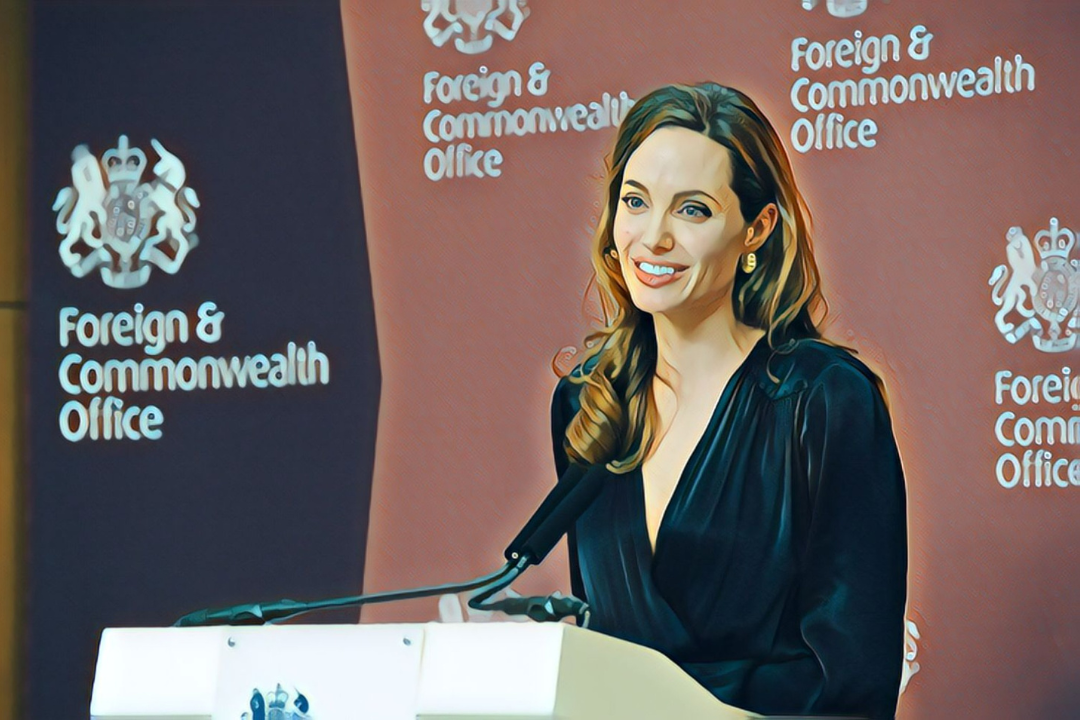Biography is a valuable form of research, allowing us to enrich our historical knowledge or causing us to adjust or completely rethink what we think we know.
Historian Sabina Loriga states that in the 19th and 20th centuries, “history books were full of facts without protagonists.” Many historians were obsessed with looking at the bigger picture – looking for commonalities, trends and patterns and highlighting a “single white light” of the past. Loriga said historians wrote about “powers, nations, peoples, alliances and interest groups but rarely of human beings” because it was claimed that the thoughts and actions of individuals had no historical meaning.
Can you imagine?!? Imagine if, in a hundred years, your presence was just completely wiped from the earth, save for your gravestone, because you have no historical meaning? Your thoughts and actions don’t matter, only the fact that the Liberals or Democrats were in power, or that Millennials were fed with a silver spoon (false, BTW).
German philosopher Johann Gottfried Herder was an exception in his time; in 1793 he wrote,
How I am struck with fear when I hear an entire nation or age characterised by a few words: for what tremendous differences are contained in the word nation, or in Middle Ages or in ancient and modern times!
Hear, hear – we are different.
Historians in the 1980s and 1990s were unhappy with the dominant ideas of social class and rejected the idea that people were simply a product of their times. Renders said that “it is a relic of Marxist scholarship to think that every individual human being responds in the same manner to large social structures and events,” that is, that the study of individuals is crucial.
Magnússon, Renders and van Fassen state that biography is a way in which we can gain multiple interpretations of historical events. They said that the difference between classical historical records and biography is important, that the two are not in competition with each other, rather, they complement each other and it’s important that the difference is preserved.
Dutch historian and biographer Binne de Haan said that historians in the past focused on “discovering macrohistorical explanations”. Biographers take the opposite approach, starting with the individual before studying the context of their lives, including the people and the world around them. Magnusson refers to this as contextualisation, that is, placing the subject into a broader context.
Renders highlighted that it’s important to consider whether the subject is unique or representative of a group. For example, a hundred years from now, looking back on our time, if your friend only ever wears skinny jeans with flannel shirts and Crocs, does your friend’s fashion sense represent all people your age? Likewise, if your partner smokes pot brisket on Saturday nights, would readers a hundred years from now be right to think that this is typical or unique? Whether they are representative or not doesn’t necessarily reduce or increase the importance of the biography, but it helps readers understand if the person is unique or if what they are reading is something that should define or rewrite history.
Renders and van Fassen tell us of an assumption made about intellectuals and artists before World War I, that it was assumed that they were all pacifists. One artist, Theo Van Doesburg, published many articles discussing his pacifist opinion but biographical research showed that his views didn’t represent the views of his peers, thereby changing our false perception of intellectuals and artists prior to World War.
Imagine, if a hundred years from now, your generation was defined by the views of a keyboard warrior, simply because they were vocal?
Renders and van Fasen’s example shows us that biography can be corrective, that is, that biography can correct what we know about history.
Dutch biographer Enny de Bruijn went further and said that biographies don’t just confirm or correct history – biographies introduce a depth and complexity that would otherwise go undiscovered, “when one works on such a micro level, the thousands of threads making up the complex web of the past becomes visible… personal documents are such powerful gateways into ideas, mentalities and paradigms of ages gone by.” Biographies allow us to not just observe how people lived, but empathise and understand how they lived and why.

Missing pieces
Publishers exert notable influence over which biographies are and are not written. Angier said that, “it is a perennial problem in life writing of all kinds that the easiest books to sell, to both the public and publishers, are about (or by) famous people. Life writers have regularly regretted this and tried to change this, but without much success.”
If biographies are primarily focused on the likes of Tom Cruise, Angelina Jolie or Franklin D Roosevelt, where does this leave the rest of us and all those who have gone before us?
Even when a publisher is open to taking on a work about lesser-known individuals, consider the resources biographers have available to them: Renders stated that large numbers of people have few records, because they “never write articles for newspapers nor ever write books, are not united in organisations and do not receive any attention from the media or historians” – in our history records, they are largely invisible. A valuable source for less famous individuals are diaries, which have added new perspectives to what we know in history, such as the Holocaust. But even then, diaries can’t always be trusted – the writer always has a motivation for writing.
It’s not just differences in economic status that separate who will and won’t be published. In the past, and even now, much of the biographical work that has been published is male-dominated, with about two-thirds of biographies being written by men and about men. Oakley said that the history of biography has been “dominated by the Victorian tradition of lives of great men written by other men”.
Historian Ann Little said that this imbalance reflects our “contemporary preoccupation with modern history themes: politics, economics, warfare, the nation-state and so on.” Adding to this, Allbrook and Nolan tell us that biography is still mostly written about male subjects, a bias that strongly suggests that the most popular biographies continue to reflect the social, intellectual and political standing of a subject.
There’s a website called the Australian Dictionary of Biography (ADB) – it’s not pretty or particularly user-friendly, but it’s a valuable source of information for over 70 million people who visit the site each year. Of its 12,000 biographical subjects, only 12% are women and only 1.6% are of Aboriginal and Torres Strait Islander descent. The dictionary chooses to include “individuals who have made a prominent contribution to the Australian nation” – so currently it (wrongly) appears that 88% of those who made prominent contributions were male – attempts have been made to rectify the imbalance but there is significant progress to be made.
Despite its challenges and weaknesses, biographies contribute considerable value to our understanding of history. It’s unlikely we’ll ever capture the life of every person, but to assume that only the famous matter is a mistake.
Author Alexander Masters said that when we write about unknown people, the unknown are “forced onto the attention of readers who know nothing about them except cliches.” Renders, de Hanne, Harsma said that “the individual can have a lasting impact on the past and that lives that are now forgotten can be as important for the historical narrative as the biographies of kings and presidents.”
Through my upcoming work, I hope to capture and share not just the stories of celebrated, remarkable individuals, but also everyday people, who are in their own way, remarkable.
Next: Getting started with biographical research.
Image: “Angelina Jolie” by the Foreign, Commonwealth & Development Office. Available at Flickr under a Creative Commons Attribution 2.0. Full terms at Creative Commons 2.0.

0 Comments